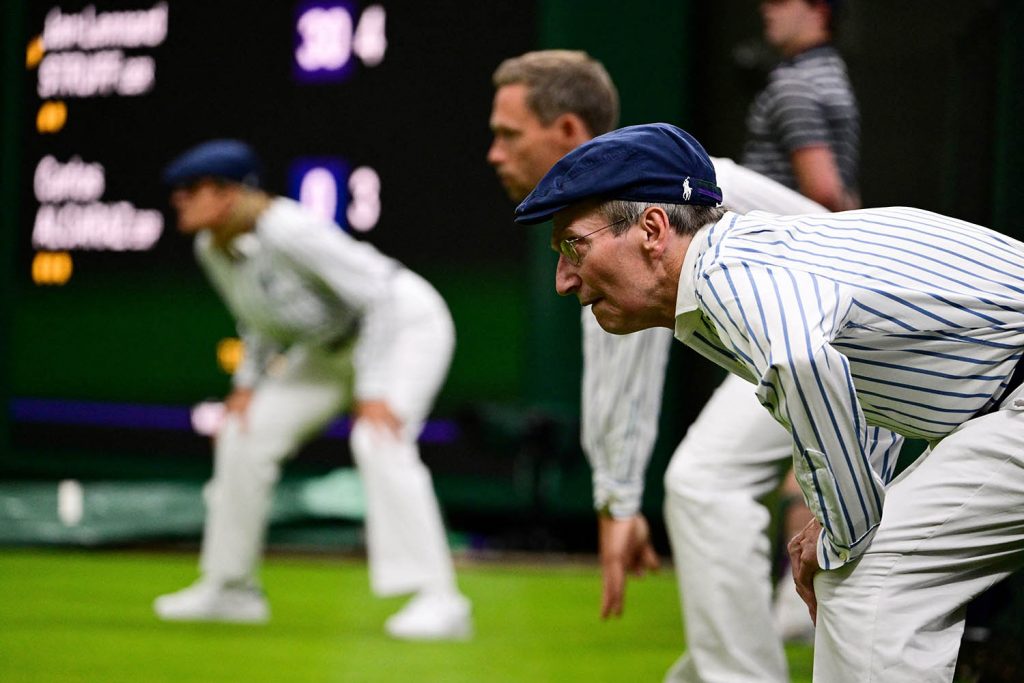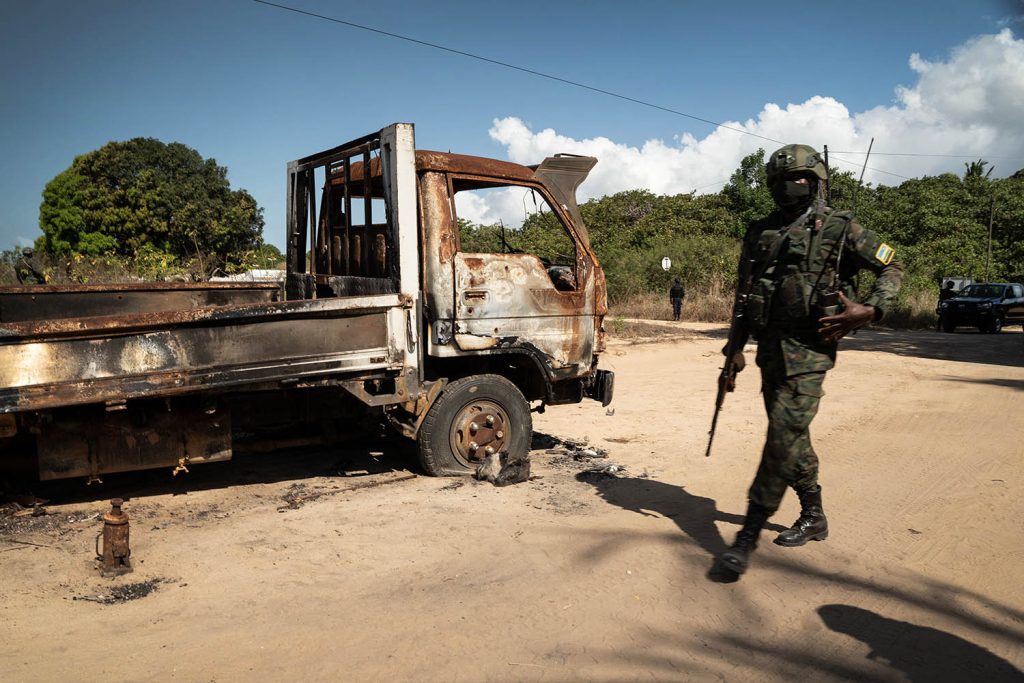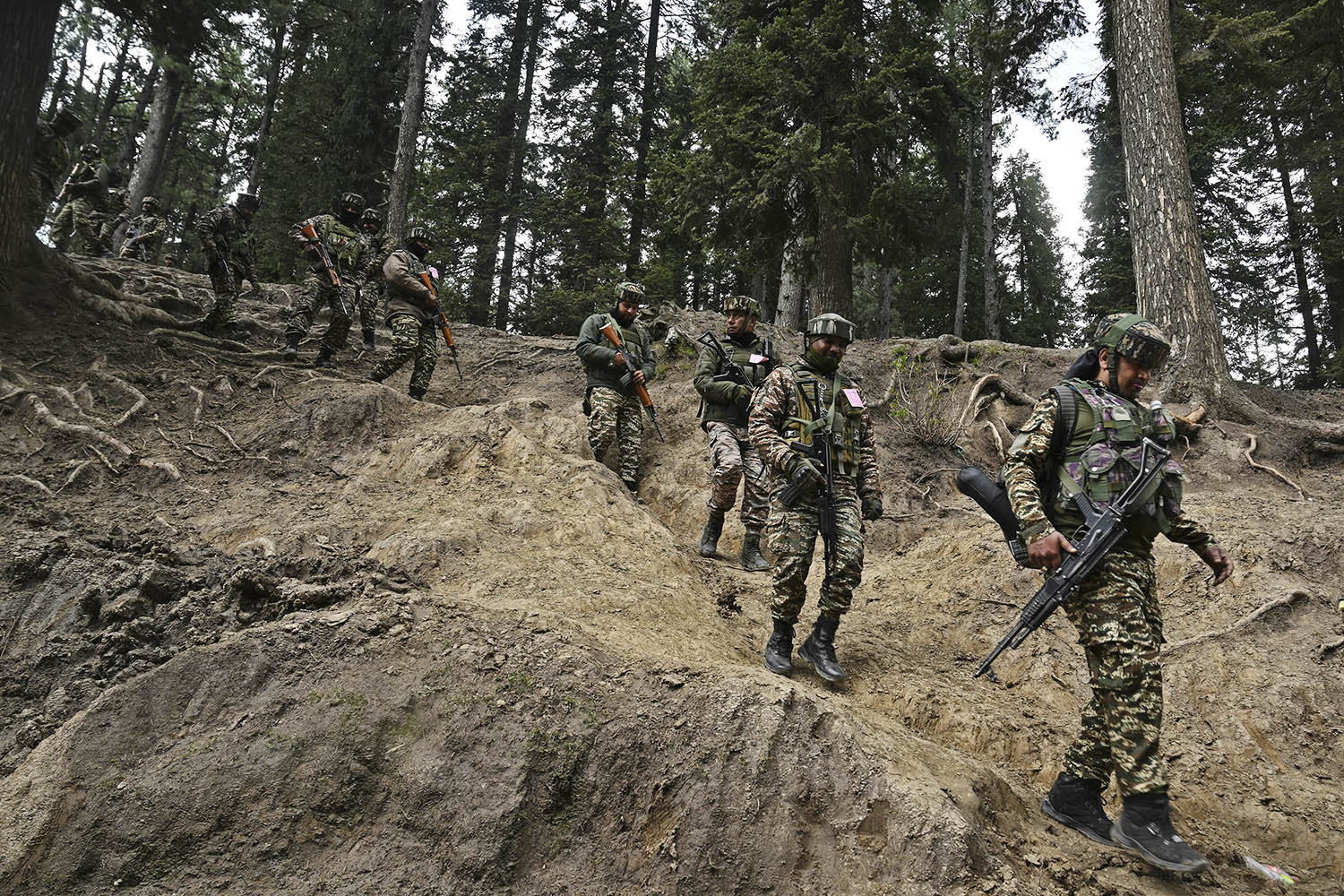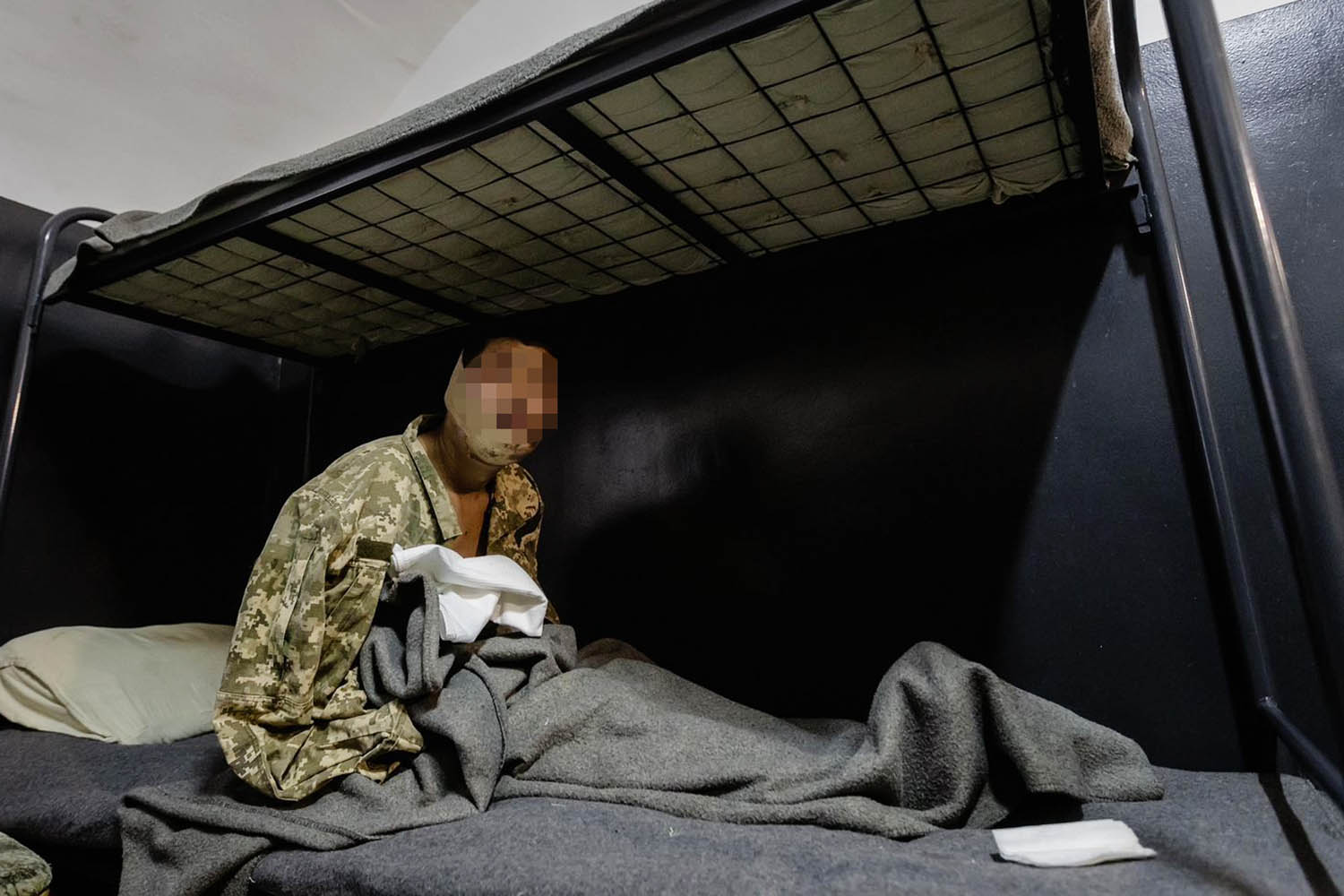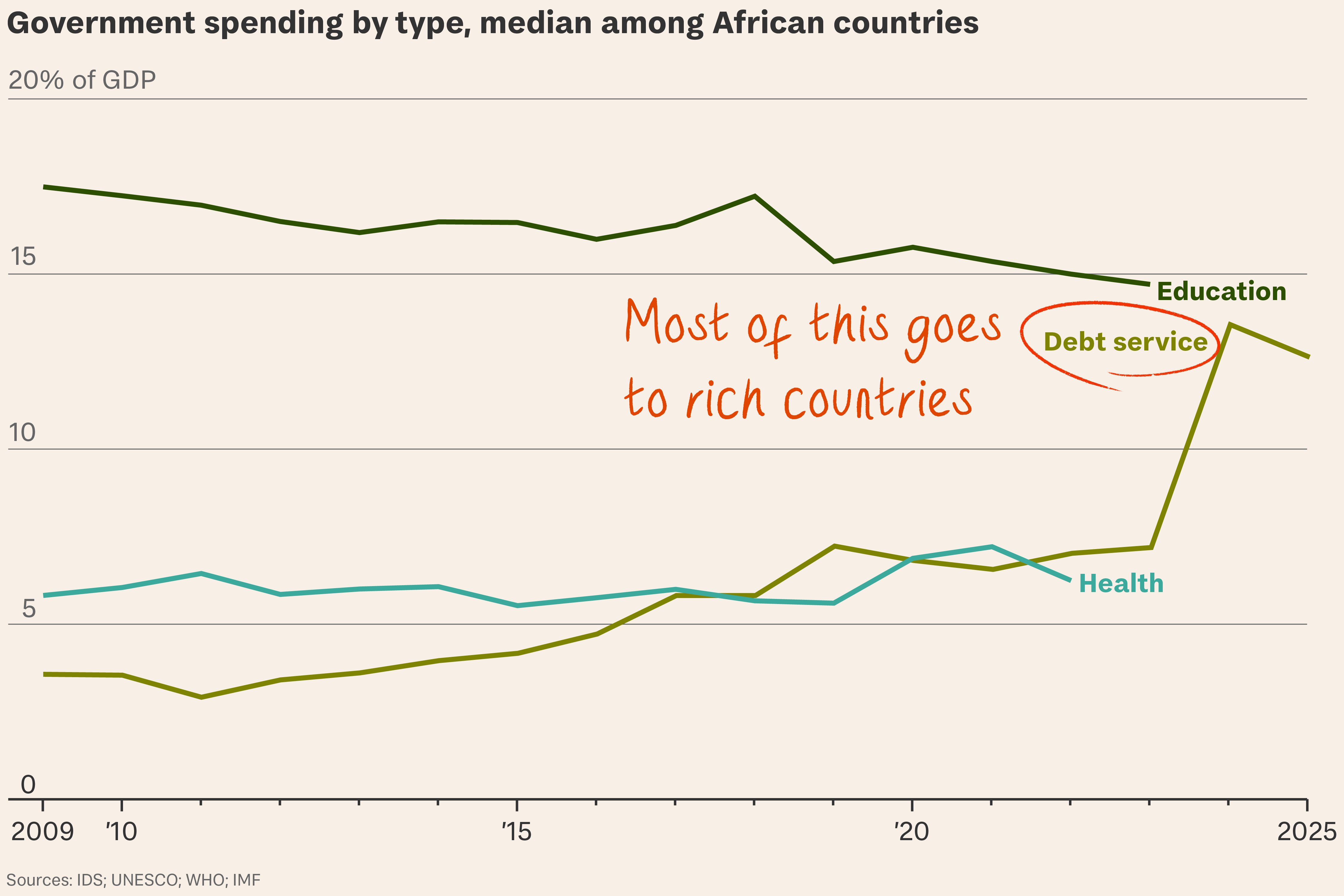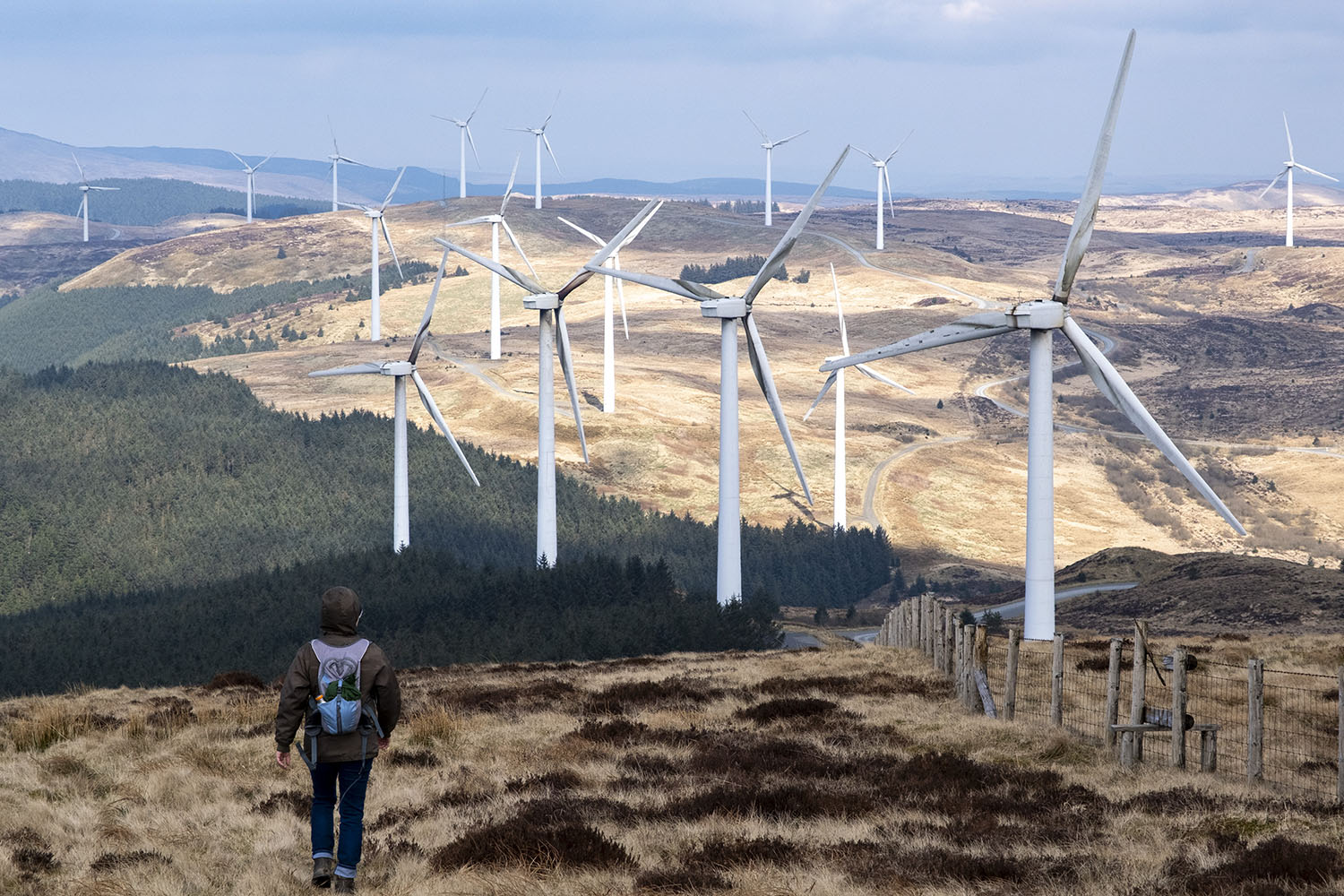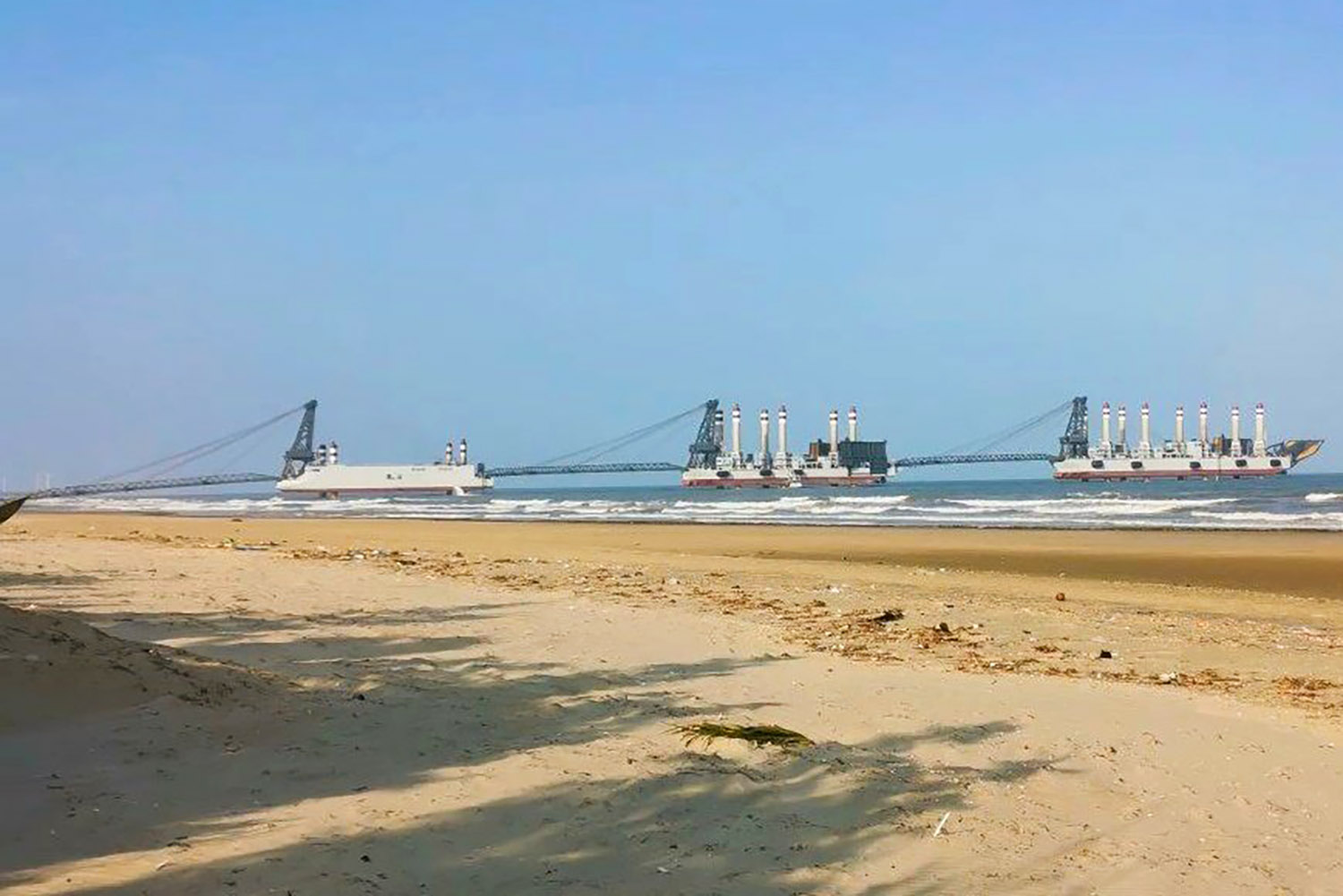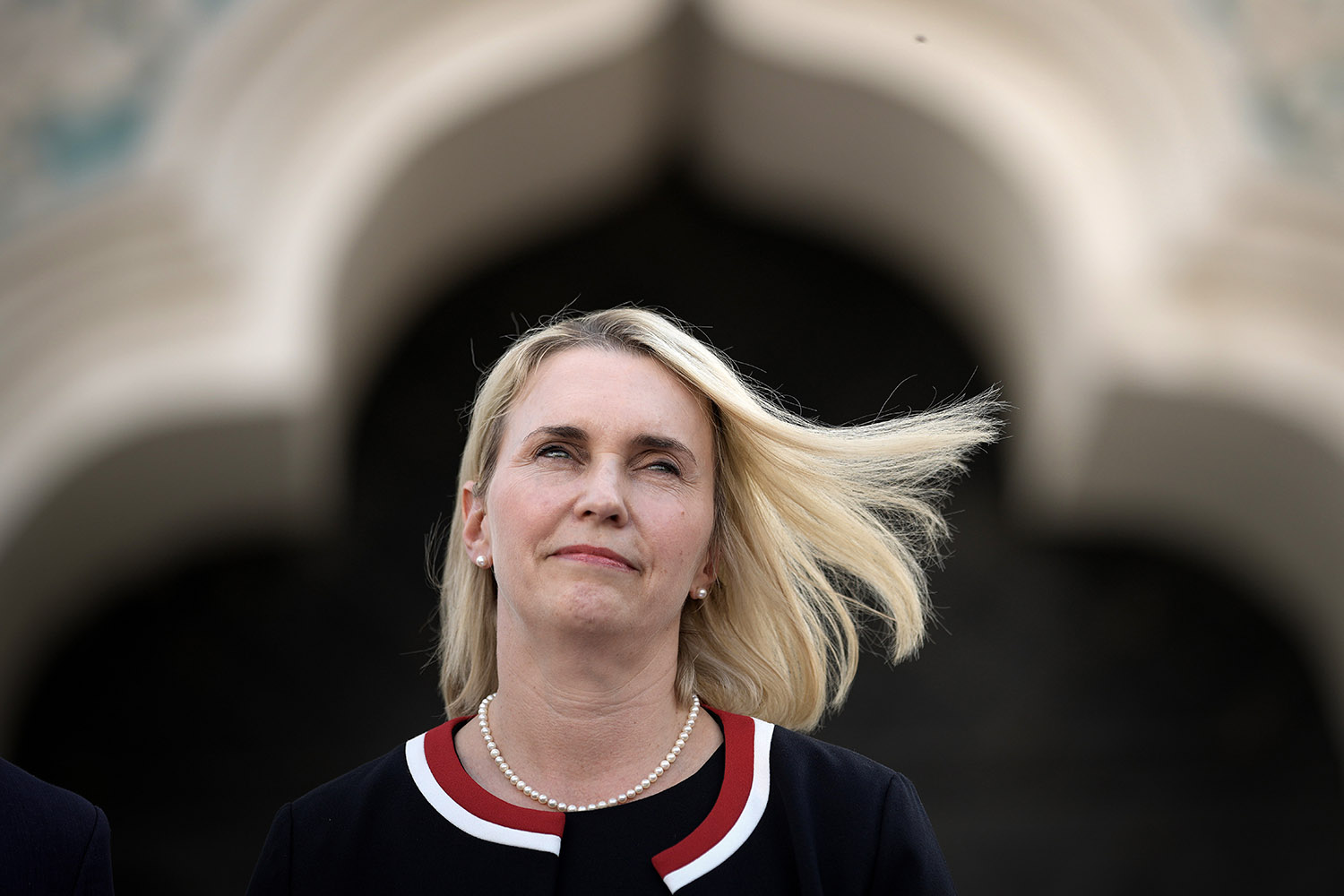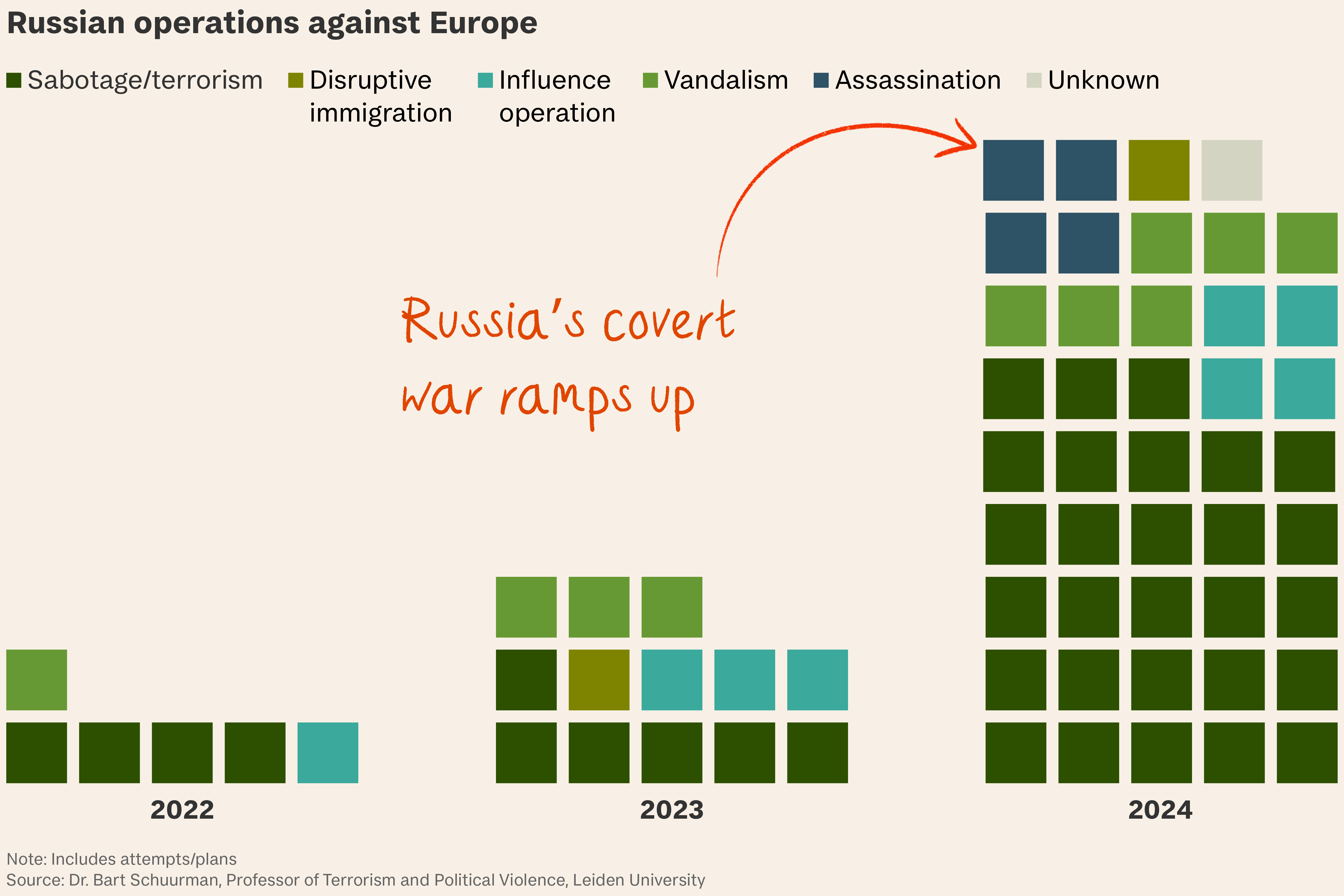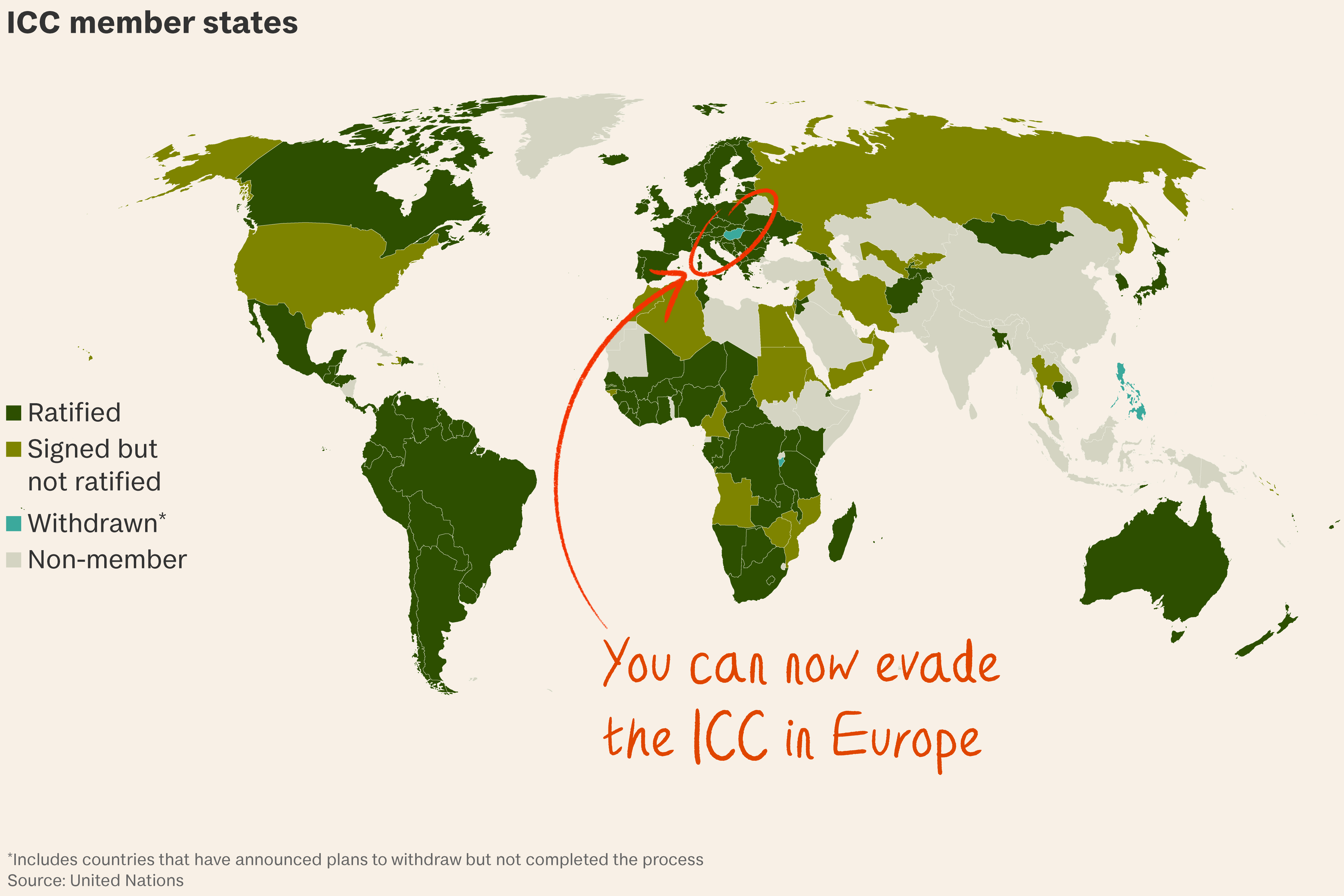
A Brazilian cattle rancher who destroyed 5,600 hectares of the Amazon has been ordered to pay $50 million to Brazil’s national Climate Emergency Fund and restore the land he logged.
So what? He hasn’t paid and probably never will, but the case of Dirceu Kruger matters.
- It marks the start of an historic legal push to reach zero deforestation in Brazil by 2030.
- It coincides with an alarming increase in illegal logging outside Brazil despite a pledge by 140 countries to halt it altogether.
- It’s a test case for a new government finding that what works in principle doesn’t always happen in practice.
In principle. Last year President Lula Da Silva promised to reverse the damage done on Jair Bolsonaro’s watch, when an area of rainforest bigger than Belgium was cleared in four years. Early signs under the new management are good:
- In the past year, deforestation in the Amazon has slowed by around 50 per cent.
- In 2022-23 the clearance rate fell to less than 10,000 sq km per year for the first time since 2018.
- The loss of tree cover in Indigenous territories fell by 73 per cent.
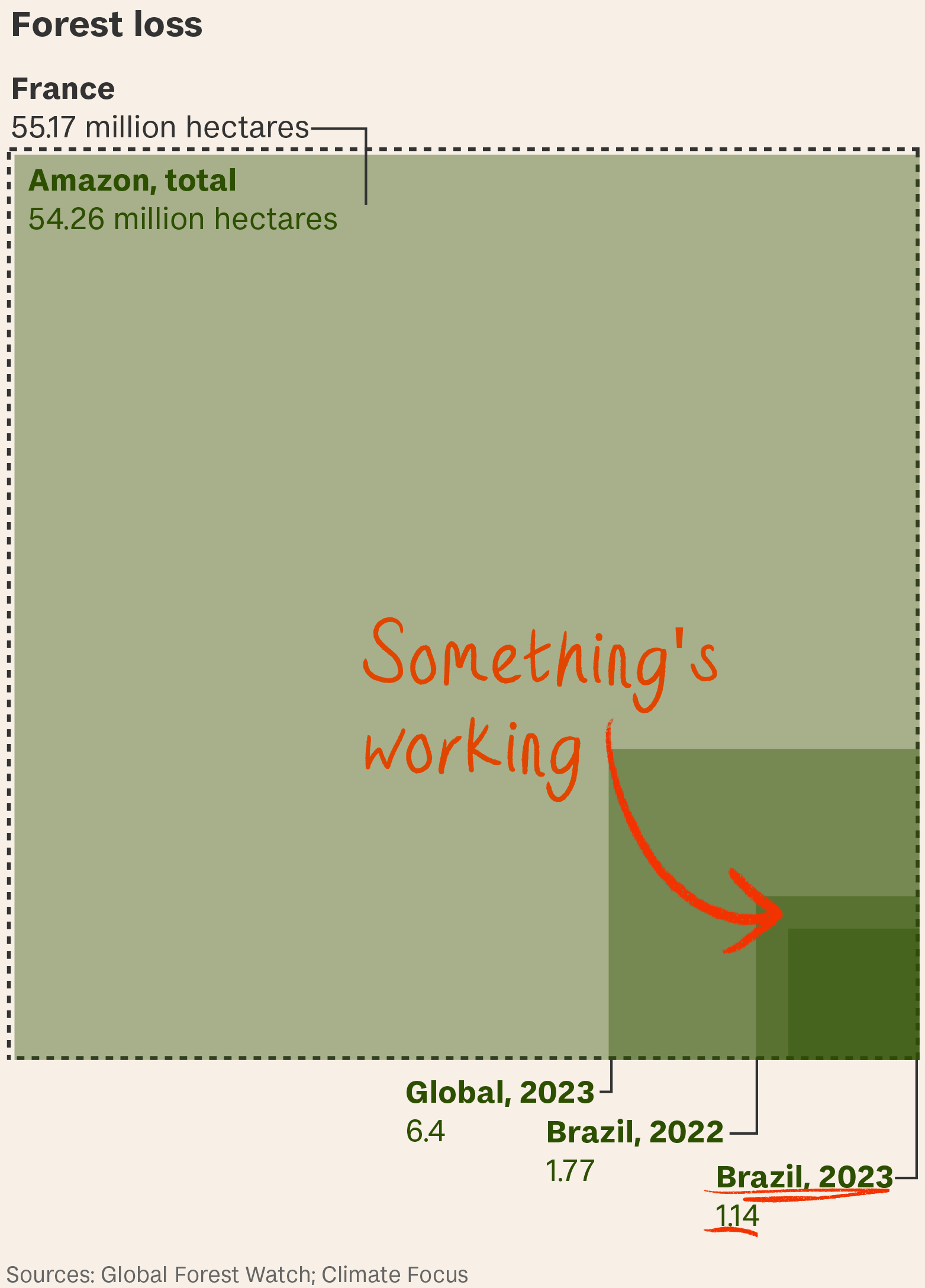
In practice. Deforestation continues. Nearly a million trees are chopped down or burned every day in the Amazon. Cattle ranches, soy and sugarcane plantations, coffee and cocoa farms continue to profit from deforestation. A new report from Climate Focus says, worldwide, an area of forest the size of the UK (62 million hectares) was razed or degraded last year.
The verdict against Kruger is a siren sounded by an independent judiciary that says it is ready to clamp down hard on destruction of rainforest in Brazil.
Tipping point. The stakes are high. Roughly 17 per cent of the Amazon has been lost to deforestation, an area the size of France; and according to a pair of studies published in Science last year a further 17 per cent has been degraded. 20-25 per cent deforestation marks the point at which the rainforest can no longer create its own (wet) weather and it transitions from a tropical forest to a dry savanna.
Eyes in the sky. The total surface area of the surviving Amazon is the size of Mexico, Mongolia, Peru and Egypt combined. Enforcing logging bans across such a vast area has always been a major obstacle to forest protection, made slightly less daunting in recent years following the introduction of:
- improved satellite imagery, which updates daily with granular images that detect tiny changes in the rainforest, including the construction of unpermitted roads and airstrips; and
- new judicial guidelines that allow judges to use these images as sufficient proof in deforestation cases.
A symbolic lawsuit. Federal Judge Rafaela Santos Martins Da Rosa called Kruger’s lawsuit a symbolic one. The rancher used chainsaws to clear vegetation, then set fires to clear the land - which, crucially, he did not own - and plant grass pastures for raising cattle. Ibama, the federal agency that brought the case, argued that Kruger had damaged the climate in two ways:
- creating a carbon source - by burning vegetation, which directly emits greenhouse gases into the atmosphere; and
- shrinking a carbon sink - since burning vegetation also stops trees removing CO2 from the atmosphere.
In 2021, the Amazon as a whole transitioned from a carbon sink to a carbon source, emitting more CO2 than it absorbs.
Bark vs bite. Kruger’s assets have been frozen and he can no longer trade cattle. The $50 million fine is based on the social cost of carbon. Kruger hasn’t paid, nor has he started to restore the land he destroyed. Da Rosa believes the legal framework in Brazil is robust enough to deter environmental damage, but the question remains whether penalties once handed down against illegal loggers can be enforced.
What’s more… Kruger’s ruling may have opened the door to more claims of illegal deforestation, but it does not consider legal deforestation on private land, which makes up 29 per cent of the Amazon.

